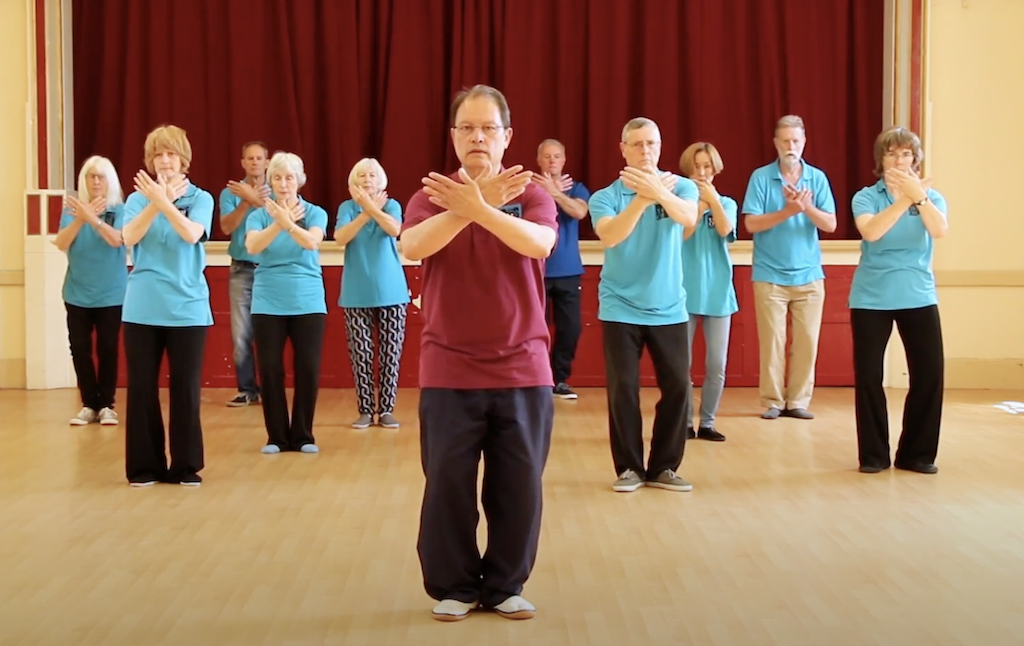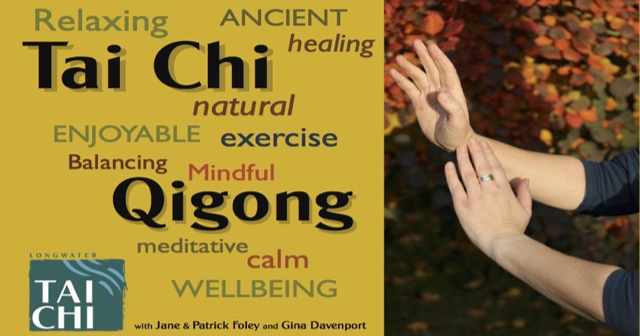Longwater Tai chi - How to Practice
At the heart of all we teach is moderation.
Living and learning in moderation is a very alien concept to many of us who are part of the go-for-the-burn, no-pain-no-gain philosophy of the modern world.
Strain can be seen as a result of breaking the rule of moderation - it is a physiological condition caused by excessive exercise or too much tension / adrenaline. This shouldn't be confused with effort, which may left you feeling tired and exercised, but not physically, emotionally or mentally injured.
Practise towards life.
Quite simply, by performing any Tai Chi or Qigong technique to your comfortable maximum you can:
- absorb what you learn more easily.
- reduce your internal resistance & maintain the effort for longer.
- store your energy for a time when you really need it.
- increase your capacity as you practise, without stress.
- enable the body's natural ability to heal.
For example, many of us have one side of our body that is weaker than the other, for whatever reason. When applying the moderation rule to movements on the weaker limb/side, you have a choice. You can reduce the range of movement on your stronger side to match the range of the weaker side; or you can exercise each side differently to suit the mobility of that side. This maintains balance in your postures and focuses on developing the weaker side, as well as stopping the stronger from 'stealing' Qi from the weaker.
Importantly, this rule assumes you are in normal health. If you are experiencing stress or discomfort at a physical, emotional or mental level, you must adjust the percentage rule to suit your condition. Always check with a qualified medical practitioner to get their advice about the suitability of exercise for your condition. You should adjust the amount of effort and practice according to how you feel. Some people with chronic pain for example, may find that they need to work right down at a 2% range, that to many would look as though they are barely moving. If you have an injury that is healing and you’ve been told it’s OK to do some gentle exercise, you may choose to use the 20% rule for a while until you feel a release occur, then you may practise using the 30% rule for a while and so on, to gradually return your body to a normal balance at 70-80%. The same principle applies to mental and emotional stresses, in holistic terms these stresses affect your body and you should be gentle and compassionate with yourself.
Longwater Tai Chi - Code of Practice
The teachers at Longwater Tai Chi would be grateful if the following was observed in our classes and workshops:
Dress Codes
We do not use uniforms - most students prefer to wear comfortable clothes with a bit of stretch and practice with socks, flat shoes that don't tip you forward or bare feet. You mignt also want to bring a bottle of water.
Personal Boundaries and Conduct
We expect both teachers and students to treat each other with respect, dignity, patience and understanding to the best of each of their capabilities.
Experience has taught us that sometimes students look to our instructors to meet personal and spiritual needs and expectations beyond what we intend to provide. The school's aim is to provide quality instruction in Tai Chi in the tradition of our masters; we do not offer personal, emotional or spiritual contact, support or guidance.
Participation & Physical Contact
You may at any time refuse to participate in, or you may limit your participation in, any exercise with which you are uncomfortable, whether the exercise involves just yourself or other persons.
Please communicate your preferences to any teacher or student as you see fit.
Remember - if you feel unwell, you should let us know and not attend your class.
Suggestions, Comments & Complaints
We welcome and seek suggestions, comments or complaints on any topic related to the operation of the school. Please let us know about your concerns; they are very important and helpful to us! However, we do ask that you do not offer suggestions and complaints during classes.







